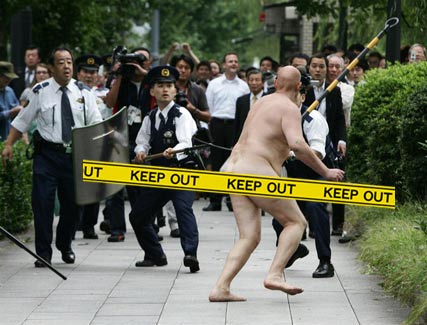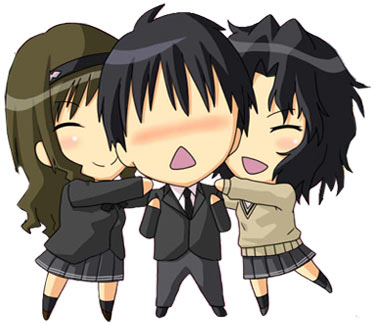One aspect of the Japanese is that they don’t show their emotions as freely or in the same ways that Westerners do, usually hiding their external feelings depending on the “TPO,” a Japanese abbreviation meaning “time, place and occasion.” To the Japanese, it’s almost a given that foreigners will show emotions openly, for example wildly praising food they like as the most delicious thing in the universe, and letting their excitement influence their speech when speaking Japanese. The other day there was a fly buzzing around the J-List office which I was trying to kill a fly-swatter, and Yasu said, “I wonder if Peter will shout ‘yee-haw!’ after he kills the fly.” (Apparently I did this once, to the eternal amusement of the J-staff.) I think that most foreigners who stay in Japan for some time develop a slightly altered personality as they adapt to life here, creating what in modern anime parlance would be called a “chara,” or an external face they wear. When I was an English teacher, my students expected me to be happy and outgoing, and that unconsciously made me become that person.

The biggest facepalm in the history of gaijin-nihonjin relations.















